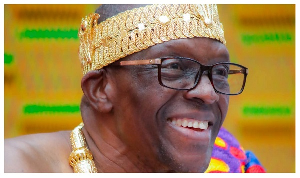Ghana stands on the edge of a constitutional precipice, teetering dangerously between the rule of law and raw political manoeuvring. In its most recent blow to parliamentary democracy, the Supreme Court of Ghana, with its now swelling ranks of government-aligned justices, has issued a stay of execution on a ruling by the Speaker of Parliament, Alban Bagbin.
His decision declared the seats of four Members of Parliament vacant under the unambiguous Article 97(1)(g) of the 1992 Constitution. It is a decision grounded in law, rooted in precedent, and fortified by the fundamental democratic principle that MPs cannot cavalierly switch allegiances, nor should they contest elections as independents, without losing their right to represent their constituencies.
Yet here we are. The very New Patriotic Party (NPP) that, just four years ago, celebrated the invocation of this same constitutional provision when one of its own, Andrew Amoako Asiamah, dared to run as an independent, now shamelessly scrambles to the courts to shield its errant MPs from the same fate. What we witness is not just hypocrisy; it is an affront to democratic integrity, a naked exercise in political self-preservation.
And worse, it is aided by a judiciary that, under the tenure of President Nana Addo Dankwa Akufo-Addo, has seen an alarming tilt toward partisan allegiance. The critical voices of democracy, the guardians of constitutional integrity, must speak out—and speak out loudly.
The Supreme Court’s stay of execution is not merely a legal anomaly; it is a fundamental violation of the separation of powers, a doctrine that forms the bedrock of any functioning democracy. Article 122 of Ghana’s Constitution mandates that each branch of government—the executive, legislature, and judiciary—operates within its prescribed limits.
The Speaker of Parliament, vested with the authority to declare seats vacant in accordance with constitutional provisions, is master of parliamentary procedure. This is not up for judicial interpretation or negotiation. The court’s interference is not only an overreach; it is an erosion of the legislative independence that has defined modern democratic governance since the days of Montesquieu.
Moreover, this judicial intrusion sets a perilous precedent, not just for Ghana, but for democracies everywhere. By halting the Speaker’s rightful ruling, the Supreme Court undermines the constitutional framework that upholds the integrity of parliamentary representation. Article 97(1)(g) is not ambiguous; it is crystal clear. When an MP ceases to be a member of the party under whose ticket they were elected, their seat must be vacated. To permit otherwise is to invite chaos into the corridors of power—allowing MPs to abandon their parties, betray the mandate of their electorates, and yet retain the privileges of office.
The decision of the Supreme Court is therefore not just legally flawed; it is a dangerous distortion of democratic norms. The consequences are dire. If MPs are allowed to defy their party allegiances without repercussions, what then becomes of the accountability that forms the cornerstone of representative democracy? The people elect MPs not as individuals but as representatives of parties, ideologies, and manifestos. To sever this connection is to sever the very lifeblood of democratic governance.
The NPP’s actions reveal a party desperate to cling to a parliamentary majority, a majority it has already lost due to Speaker Bagbin’s ruling. Having failed to maintain control through legitimate political means, the NPP now seeks refuge in the courts, weaponizing the judiciary as a tool for political survival. But this is a dangerous game, one that risks fracturing the very institutions that hold the nation together. A politicized judiciary is not just a threat to individual rulings; it is a threat to the very essence of the rule of law.
We must look to international examples to understand the gravity of the situation. In Poland, Hungary, and other fledgling democracies, we have seen the disastrous consequences of courts being packed with loyalists, undermining judicial independence and eroding the checks and balances that keep executive power in check. Ghana must not follow this path. If the judiciary becomes nothing more than a rubber stamp for the government of the day, the very foundations of democracy will crumble, giving way to authoritarianism cloaked in the veneer of legality.
The international community, too, must take note. Ghana has long been a beacon of democratic stability in a region often plagued by political turbulence. But this status is fragile. The actions of the NPP and the Supreme Court signal a troubling shift toward the kind of democratic backsliding that has imperilled other nations. The European Union, the African Union, and the United Nations have all established guidelines and frameworks to safeguard judicial independence and democratic integrity. It is time these institutions took a closer look at what is happening in Ghana, before it is too late.
There is no escaping the fact: the Supreme Court has violated the spirit and letter of Ghana’s Constitution. The NPP has betrayed its own past principles, clinging to power through legal manipulation rather than the will of the people. And the dangers ahead are profound. If this ruling is allowed to stand, if the judiciary continues to serve the interests of the ruling party, Ghana’s democracy will be on the brink of collapse. Today it is four MPs; tomorrow it could be the dissolution of Parliament itself.
What is at stake here is not just the fate of four MPs, but the future of Ghana’s democracy. The court’s ruling must be resisted, for it is nothing less than an attack on the integrity of the nation’s democratic institutions. The people of Ghana must rise to the occasion, as they have done so many times before, to defend the principles that have guided this country through its most difficult times. For if they do not, they will wake up one day to find that the democracy they cherish has been slowly, systematically dismantled, piece by piece, by those who claim to uphold it.
Opinions of Friday, 8 November 2024
Columnist: Nsiaba Nana Akwasi Kobi



















